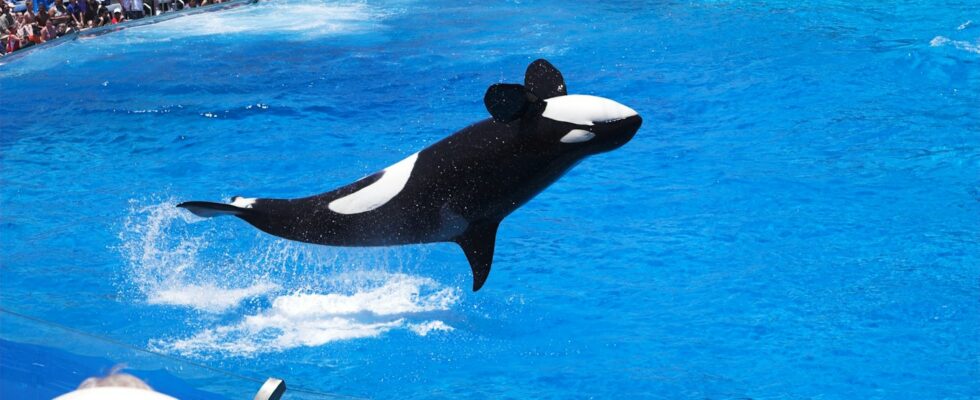Stunned and stressed Worldwide, at least half a million wild animals are forced to entertain tourists every day and although elephant rides, dolphin shows and selfies with an orangutan may seem innocent, the work can be cruel to the animals. Because behind the dancing bears and monkeys, the selfie-friendly tigers and obedient elephants, dolphins and orcas, there are often broken-down, drugged and extremely stressed animals hiding. Perhaps you remember the documentary film Blackfish about the killer whale Tilikum, who killed three people during his time at the American animal theme park SeaWorld? The film shows the consequences of keeping a wild animal like the orca in captivity and forcing it to perform. Because it is very unnatural for the animals to live in small tanks and have people so close to them. In 2020, the cruel training method used against wild elephants, The Crush, was also revealed. Here, a baby elephant is captured from the wild, then strapped in while it is starved, thirsty and beaten so that it finally obeys every command. But other animals such as tigers and bears also suffer terrible fates. For example, they are drugged and put in tiny cages. Stephanie Kruuse Klause explains that the animals undergo traumatic experiences only so that tourists can be entertained, and this creates serious physical and psychological stress for the animals. – Many animals develop unnatural behaviour. For example, elephants rock back and forth and dolphins swim around in circles. It is this kind of behavior that can show that the animals have either been through a trauma or that they live under inadequate and limited conditions. She goes on to say that because the animals are frustrated, they can also inflict physical damage on themselves. For example, some dolphins swim right into the sides of the pools and other wild animals that are put in cages gnaw the cages so that their teeth are ground down. – It is in such ways that you can see that they are harming themselves, because they are suffering from boredom, depression or stress, Klausen explains. A global trend Fortunately, the attitude towards animal shows is changing. Around the world, several countries have either banned shows with wild animals or tightened the rules. The South African country of Bolivia was the first in the world to ban the use of wild animals in circuses. It happened in 2009 and since then 50 other countries around the world have signed laws, which either prohibit wild animals in circuses, or which tighten the rules for which animals must perform under the tent cloth. Taiwan is one of the countries that has recently signed up under the animal welfare slogans. In August they banned all entertainment with wild animals. This means, for example, that both tigers, elephants and other wild animals are no longer petted, swam with or ridden on. The new law also means an end to dolphin entertainment. But Taiwan still has two dolphin facilities, which can still have shows – but the permit expires in 2026. Taiwan is not the only country that has put an end to, among other things, dolphins in captivity. In 2019, Canada banned the catching and breeding of whales, dolphins and porpoises for entertainment. Britain, Switzerland, France, Croatia and the Spanish city of Barcelona all have strict rules or bans on marine mammals in captivity – and last December South Korea made it illegal to capture whales in captivity. In addition, the sale and advertising of animal tourism with wild animals was banned last year in England and Northern Ireland. This means that travel agencies, which still sell animal entertainment with wild animals, cannot, for example, advertise elephant rides in Thailand or dolphin shows in the US. But it is not just countries that have put a lid on this kind of animal entertainment, several travel companies have also jumped on the bandwagon for better animal welfare. Some of the largest travel agencies in the world such as Booking.com, Airbnb, Expedia, Spies and Apollo are among the 160 travel companies that have signed up to World Animal Protection’s guidelines. This means that the companies do not sell and promote harmful animal experiences, but instead focus on offering ethical alternatives where the animals do not suffer. – The development that has taken place has been fast and has gone in the right direction recently. Precisely because there has been increased awareness of animal welfare, states Klausen.
ttn-70
Several countries around the world are dropping animal shows

